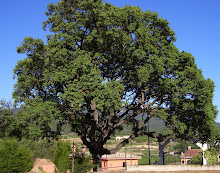"In late 2007, the count passed 100 million. (The largest number of blog posts, some 37 percent, are now in Japanese, according to a recent Washington Post article by Blaine Harden, and most of these are polite and self-effacing—"karaoke for shy people." Thirty-six percent of posts are in English, and most of them are the opposite of polite and self-effacing.)"
"Now that fame and links are one and the same, there are bloggers out there who will do practically anything— start rumors, tell lies, pick fights, create fake personas, and post embarrassing videos—to get noticed and linked to. They are, in the parlance of the blogosphere, "link whores." And those who succeed are blog celebrities, or "blogebrities.""
"In 2002 it was bloggers like Joshua Micah Marshall of Talking Points Memo and Atrios (a pseudonym) of Eschaton who first publicized Trent Lott's racist remarks at Strom Thurmond's 100th birthday party, leading to Lott's resignation as Senate majority leader."
"For many bloggers infamy is better than no kind of famy at all. "
"To go unnoticed in this democracy is to not exist. This kind of existential pressure, naturally, ups the ante on language. Invective—hilarious, acidulous invective, often served up with false apologies—is everywhere. The law of the blogosphere is Hobbesian: survival of the snarkiest."
"Of course I can't prove it, but I'm pretty sure that bloggers have fouler mouths, tougher hides, and cooler thesauruses than most of the people I've read in print. Here's a sampling of words gleaned from some of my favorite blogs:
anyhoo, bitchitude, fan-fucking-tabulous, hole-esque, nastified, alternapop, coffin-snatching, YouTube-ization, touzing, Daddio, manky, nutters, therapised, Boo-Ya Nation, dildopreneur, dudely, flava, haz-mat, nut sac, sexbot, underwearian, fugly, vomit-y, consciousness-jumped, tear-assed, fetbryo, grapetastically, mommyblogdaciousness, Nero-crazy, Engrish, pidginized, votenfreude, angsty, malgovernment, bejesus, JumboTron, man-dresses, babe-aliciousness, droit de senny.""Bloggers are golden when they're at the bottom of the heap, kicking up. Give them a salary, a book contract, or a press credential, though, and it just isn't the same. (And this includes, for the most part, the blogs set up by magazines, companies, and newspapers.) Why? When you write for pay, you worry about lawsuits, sentence structure, and word choice. You worry about your boss, your publisher, your mother, and your superego looking over your shoulder. And that's no way to blog."
"Blog writing is id writing—grandiose, dreamy, private, free-associative, infantile, sexy, petty, dirty. Whether bloggers tell the truth or really are who they claim to be is another matter, but WTF. They are what they write. And you can't fake that. ;-)"
Sorry to NYRB for the kind of plagiarism but I had only the article on my computer, not the exact reference to get to it - and was too lazy to google for it...






